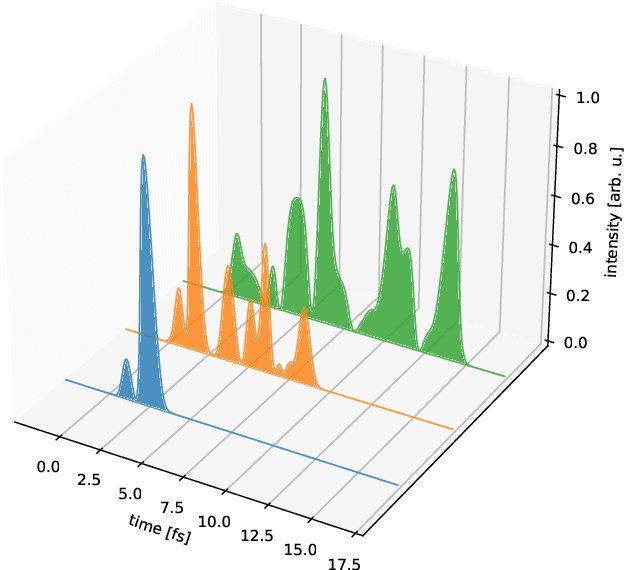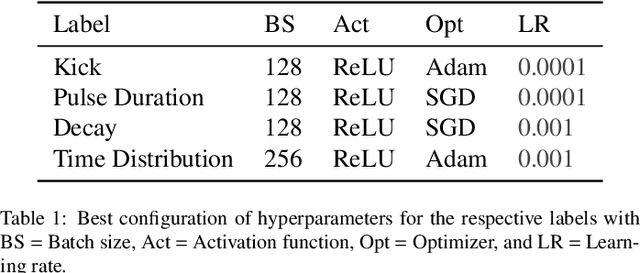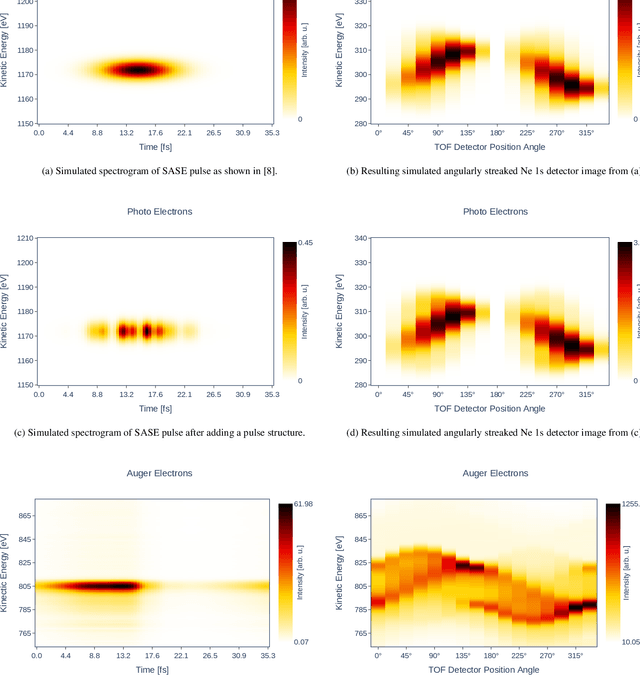Toward AI-enhanced online-characterization and shaping of ultrashort X-ray free-electron laser pulses
Paper and Code
Aug 31, 2021



X-ray free-electron lasers (XFELs) as the world`s most brilliant light sources provide ultrashort X-ray pulses with durations typically on the order of femtoseconds. Recently, they have approached and entered the attosecond regime, which holds new promises for single-molecule imaging and studying nonlinear and ultrafast phenomena like localized electron dynamics. The technological evolution of XFELs toward well-controllable light sources for precise metrology of ultrafast processes was, however, hampered by the diagnostic capabilities for characterizing X-ray pulses at the attosecond frontier. In this regard, the spectroscopic technique of photoelectron angular streaking has successfully proven how to non-destructively retrieve the exact time-energy structure of XFEL pulses on a single-shot basis. By using artificial intelligence algorithms, in particular convolutional neural networks, we here show how this technique can be leveraged from its proof-of-principle stage toward routine diagnostics at XFELs, thus enhancing and refining their scientific access in all related disciplines.
 Add to Chrome
Add to Chrome Add to Firefox
Add to Firefox Add to Edge
Add to Edge